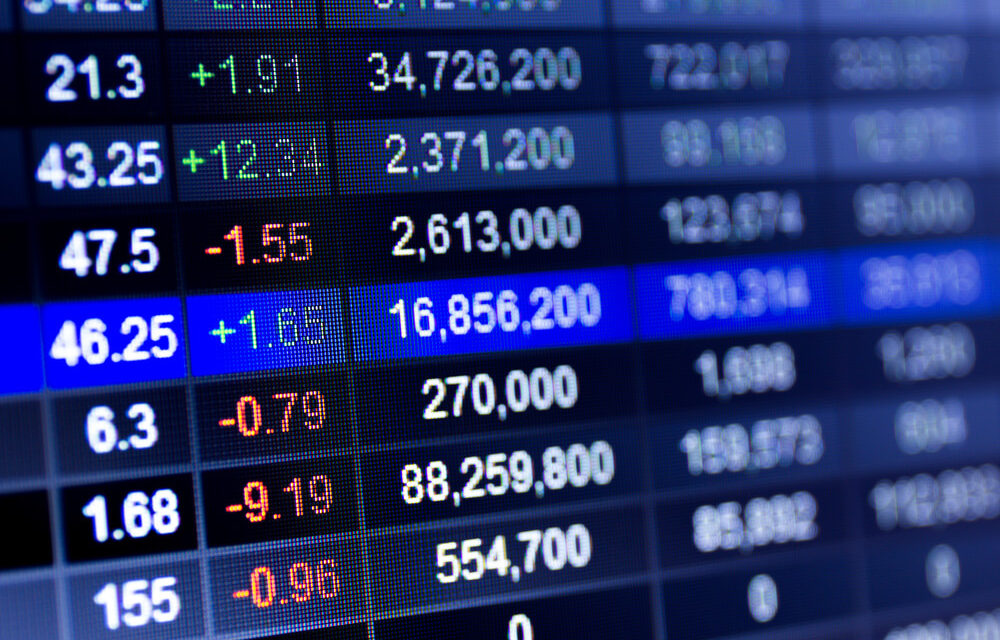U.S. stocks are tumbling for the second consecutive day as the market’s recent downturn gets worse. Indexes in Europe and Asia also skidded. The S&P 500 index is on track for its sixth consecutive loss as investors try to gauge the best place to put their money amid concerns over interest rates and trade and signs of slowing global economic growth.
While health care and bank stocks are doing the worst Thursday, the selling is across the board, even hitting stocks considered to be safe havens. Technology companies and retailers, including longtime market favorites Apple, Alphabet and Amazon, continue to slide. Energy companies fell with oil prices, and even safer bets like utilities and real estate companies sank. After months of declines, gold made its biggest jump in two years.
A surge in bond yields came to an end as investors who sought safety bought government bonds. The market’s current decline was set off by a sharp drop in bond prices and a corresponding increase in yields last week and early this week. But the decline in yields didn’t help stocks Thursday.
And there are lingering concerns about the unresolved trade dispute between the U.S. and China. Strong earnings reports in the upcoming weeks could soothe investor nerves, but any negative comments from company executives about future profits could have the opposite effect.
KEEPING SCORE: The benchmark S&P 500 index slipped 57 points, or 2.1 percent, to 2,728 after it fell 3.3 percent Wednesday. It’s down 6.7 percent in its current losing streak, its worst downturn since a 10-percent drop in early February.
The Dow Jones Industrial Average dropped 469 points, or 1.8 percent, to 25,130, after falling as much as 698. The Nasdaq composite slipped 93 points, or 1.3 percent, to 7,329. On Wednesday it suffered its biggest loss in two years. The Russell 2000 index of smaller-company stocks fell 22 points, or 1.5 percent, to 1552.
AROUND THE GLOBE: Stocks in Asia and Europe took even steeper losses. France’s CAC 40 and the British FTSE 100 both dropped 1.9 percent and the DAX in Germany lost 1.5 percent. Tokyo’s Nikkei 225 gave up 3.9 percent and Hong Kong’s Hang Seng index shed 3.5 percent. The Kospi in South Korea fell 4.4 percent.
“People are trying to get a sense of ‘where should my money actually be right now?'” said JJ Kinahan, chief market strategist for TD Ameritrade. Kinahan said investors don’t know what to do because stock prices are skidding, but bond prices have also dropped sharply, which limits the appeal of bonds as an investment.
The S&P 500’s current decline is the longest since a nine-day skid shortly before the 2016 presidential election. It has climbed 28 percent since Donald Trump was elected.
THE FED: On Thursday, President Trump renewed his criticism of the Federal Reserve, blaming the recent downturn in the stock market on the Fed’s rate policy.
“We have interest rates going up at a clip that’s much faster than certainly a lot of people, including myself, would have anticipated. I think the Fed is out of control,” the president said to reporters in the Oval Office.
Trump said he had no intention of firing Jerome Powell, who he appointed as Fed chairman in February.
INTEREST RATES: Bond prices rose as the recent surge in yields attracted the attention of some investors. The yield on the 10-year Treasury note fell to 3.13 percent from 3.22 percent late Wednesday. That’s still sharply higher than it was about a week ago, and earlier this week the yield on the 10-year note reached its highest level since mid-2011.
The drop in yields hurt banks, and JPMorgan Chase fell 3.3 percent to $107.77 while Bank of America sank 2.9 percent to $28.40. JPMorgan Chase and several other banks will report their third-quarter results Friday morning.
Kinahan said investors want to know if Corporate America is worried about the Trump administration’s tariffs on Chinese imports and if it sees signs of slower economic growth.
GOING DOWN: In health care, CVS sank 7.2 percent to $73.25 and Aetna sagged 2 percent to $199.37 after the New York Post said New York state regulators have concerns about CVS’ purchase of the health insurer. The Justice Department approved the $69 billion deal on Wednesday.
Amazon dropped another 3.4 percent to $1,694.01 and Apple fell 1.4 percent to $213.25. Microsoft and Alphabet, Google’s parent company, held up better than the rest of the market. After years of big gains, those stocks are currently out of favor. Amazon and Alphabet, respectively the second- and fourth-most valuable U.S. companies, are in what’s known as a “correction,” a drop of more than 10 percent from a recent peak. Facebook, which ranks sixth, has tumbled 30 percent since late July, and Netflix has fallen 22 percent, meeting the threshold for a “bear market.”
The Nasdaq composite has fallen 9.7 percent since it set a record high in late August.
High-dividend companies like utilities and household goods makers fell. Still, they have held up better than the rest of the market during the recent skid.
COMMODITIES: U.S. crude dropped 3 percent to $70.97 a barrel in New York. Brent crude, the international standard, dropped 3.4 percent to $80.26 a barrel in London. The price of gold jumped 2.9 percent to $1,227.60 an ounce.
Wholesale gasoline lost 4.3 percent to $1.93 a gallon. Heating oil shed 2.6 percent to $2.33 a gallon. Natural gas fell 1.9 percent to $3.22 per 1,000 cubic feet.
In other metals trading, silver rose 2 percent to $14.61 an ounce and copper added 0.8 percent to $2.80 a pound.
CURRENCIES: The dollar fell to 111.98 yen from 112.59 yen, and the euro rose to $1.1593 from $1.1525.
© The Associated Press. All rights reserved.




